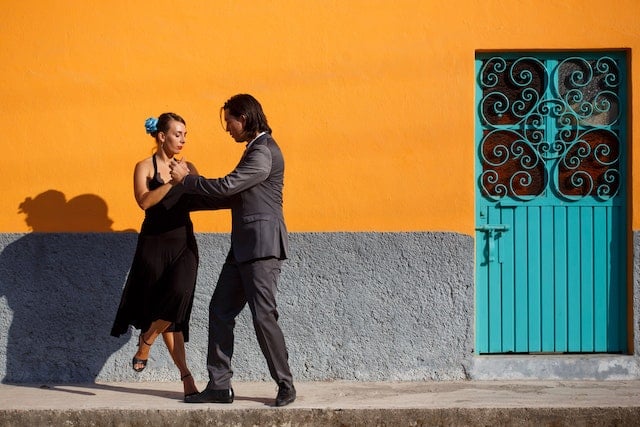The Best Spanish Swearwords from Spain and Latin America
Language is a powerful tool that reflects the unique cultural nuances of different countries. While the use of swear words is generally discouraged, exploring how different cultures employ profanities can offer intriguing insights into their customs and attitudes. This light-hearted exploration of common Spanish swearwords from Spain and various Latin American countries will not only entertain but also provide an interesting approach to language learning.
Table of Contents
Spain: Passion and Expressiveness
1. Joder
2. Coño
3. Gilipollas
4. Cabrón / Cabrona
Mexico: Color and Playfulness
5. Chingar
6. Hijo de la chingada
7. Argüendero/a
8. Coscolino/a
Argentina: Creativity and Wit
9. Boludo/a, pelotudo/a
10. Trucho/a
11. Buchón / Buchona
12. Grasa
Cuba: Colourful Expressions
13. Pinga
14. Bollúa
15. Chivato/ Chivata
16. Tolete
→Sign Up Now: Free Trial Spanish Lesson With a Native Teacher!←
Spanish Swearwords from Spain: Passion and Expressiveness
In Spain, known for its passionate nature and vibrant lifestyle, swearwords are often used to amplify emotions or convey strong feelings. The Spanish language is known for its colourful expressions, and Spanish swearwords (just like Spanish nicknames for lovers!) are no exception. Here are some of the most popular swearwords from Spain:

Image via Pexels
1. Joder
Literally translating to “to fuck” or “to screw,” this versatile expletive is commonly used in Spain to express surprise, frustration, or annoyance. Equivalent to English expletives like “fuck,” “damn,” or “shit,” it can add emphasis to a sentence or convey strong emotions.
For example: “¡Joder! No puedo creerlo” (Damn it! I can’t believe it!)
2. Coño
Derived from the word for “c**t,” this exclamation of surprise or indignation is frequently used in Spain. It is similar to English exclamations like “bloody hell” and adds a touch of emphasis or frustration to a sentence.
For example: “¡Coño! Se me olvidó la comida en el fuego” (Shoot! I forgot the food on the stove.)
3. Gilipollas
Looking for Spanish swearwords to address other people? This term literally translates to “idiot, but is used more frequently as an insult. It’s equivalent to English insults like “jerk” or “dumbass.”
For example: ¡Eres un gilipollas, te dije que no tocaras mi ordenador! (You’re such a jerk, I told you not to touch my computer!)
4. Cabrón / Cabrona
This colourful term is generally used to express anger or frustration at someone’s attitudes or actions, similar to the English expletives “bastard” and “son of a bitch.” Depending on gender, it can be modified with either cabrón (for males) or cabrona (for females).
Spanish Swearwords from Mexico: Colorful Expressions and Playfulness
Mexico, a country known for its vibrant culture, has a penchant for creative and imaginative swearwords. Mexicans often use vivid expressions to add flavour to their conversations and convey their emotions more effectively. So, if you ever hear one of these Spanish swearwords directed at you while you are in Mexico, don’t worry. They’re often used in a playful, friendly manner among friends.

Image via Pexels
5. Chingar
A word with countless meanings and uses, “chingar” can be translated as “to f**k” but has various colloquial meanings. Mexicans employ it to express annoyance, surprise, or to intensify their speech. It can be equivalent to English expressions like “to mess with,” “to screw up,” or “to annoy.”
For example: “No me chingues, o me las vas a tener que pagar” (Don’t mess with me, or you’ll have to pay the consequences.)
6. Hijo de la chingada
The word ‘chingada’ is the past participle of ‘chingar’. Saying that someone is a chingada’s son is equivalent to calling them a “son of a b*tch” in English. It’s commonly used as an expression of annoyance or frustration. However, the term is stronger in Mexico than it is in English.
For example: “¿Cuándo me vas a pagar lo que me debes, hijo de la chingada?” (When are you going to pay me what you owe me, you son of a b*tch?)
7. Argüendero/a
In Mexico, this adjective is used to describe a person who enjoys gossiping or spreading rumours about other individuals or matters that do not concern them. The closest English equivalents are “gossipy” and “nosy.”
For example: “Mi vecino es muy argüendero, siempre está metiéndose en asuntos ajenos” (My neighbour is so nosy, he’s always getting involved in other people’s business.)
8. Coscolino/a
This word refers to a person who is playful, charming, and enjoys flirting with others. It is usually used to tell off someone who is smooth-talking and uses their charisma and charm to engage in flirtatious interactions.
For example: “Deja de andar de coscolino y ocúpate de tu pobre mujer” (Stop flirting and take care of your poor wife!)
Spanish Swearwords from Argentina: Creativity and Wit
Argentinian culture is renowned for its creativity and wit, which are reflected in the language used in everyday conversations. Argentinians often use vivid expressions and wordplay to keep their conversations both lively and entertaining. Their use of swearwords often reflects this creativity and plays with linguistic nuances. Here are some Spanish swearwords commonly used in Argentina…

Image via Pexels
9. Boludo/a, pelotudo/a
The term “boludo” or “pelotudo (from ‘bola’ or ‘pelota’: ball) literally translates to “big balls” or “testicles. In Argentina, these words are commonly used insults. However, its meaning is highly context-dependent, and it can vary in intensity depending on the tone and way it is used. While it is considered a vulgar term, it can also be used in a friendly way as a synonym for “dude”.
For example: “¿Boludo, qué hacés? (Hey dude, what are you up to?)
10. Trucho/a
This is a slang word derived from the verb “truchar,” which means to falsify, counterfeit, or create something in a fraudulent or deceptive manner. “Trucho” is often used to describe something (or someone!) that is fake or of low quality. It can refer to counterfeit products, knock-offs, items that are not genuine, or people who engage in fraudulent activities.
For example: Qué trucho que sos, ¿cómo me vas a regalar esto? (You’re so cheap, how dare you give me this as a birthday gift?)
11. Buchón / Buchona
This word is a pejorative adjective derived from the word ‘buche’, an informal way of referring to the human mouth. It implies that the person being referred to is betraying the trust of others and is willing to share information that may lead to negative consequences for someone else. In a word, it means that he or she is a snitch!
For example: “No seas buchón, no se lo cuentes a nadie esta vez” (Don’t be a snitch, don’t tell anyone this time.)
12. Grasa
The term “grasa”, which literally means “grease”, is a versatile slang word that is often used to describe someone or something that is perceived as vulgar, low-class, or lacking refinement. Apart from describing people, “grasa” can also be used to refer to things or situations that are considered tacky or kitschy.
For example: “Esa decoración es muy grasa” (That decoration is very tacky)
Spanish Swearwords from Cuba: Colorful Expressions
Of course, Cuba has its own set of peculiar curse words that reflect the island’s unique culture. Cuba is a country known for its vibrant music, warm spirit, and resilient people, and some of this is evident in their sense of humour. Here are some common Spanish swearwords you will hear in Cuba:

Image via Pexels
13. Pinga
‘Pinga’ is perhaps the most universal of Cuban vulgar words. Used to strongly express denial or rejection of something, the expression is often accompanied by a gesture where the closed fist is moved towards the crotch.
For example: ¡Pinga! No voy ni loco (Hell no! I’m not going!)
14. Bollúa
The term ‘bollúa’ refers to a lazy woman who prefers to have others do the work she should be doing herself. It is synonymous with another Cuban term: ‘Papayúa’.
For example: “¡Ya no seas bollúa, ponte a trabajar!” (Stop being lazy and get to work!)
15. Chivato/ Chivata
This word is derived from the verb ‘chivar’, which means to gossip or to tell on someone. ‘Chivato’ or ‘Chivata’ is used to refer to someone who is a tattletale or snitch.
For example: “¡No seas chivato, no se lo cuentes a nadie!” (Don’t be a snitch, don’t tell anyone!)
16. Tolete
When someone wants to offend another person by saying they have low intelligence, culture, or education, one of the most commonly used Spanish swearwords is ‘tolete.’ It is similar to other Spanish insult words such as ‘pichurrio’ or ‘tonto’, and its nearest English equivalents are ‘stupid’, ‘idiot’ or ‘fool’.
For example: ¡No seas tolete, deja de seguirle el juego! (Don’t be an idiot, stop playing his game!)
To sum up: Swear words, although not recommended for polite conversation, offer a unique insight into the cultural and linguistic differences among Spanish-speaking countries. From the passionate expressions in Spain to the creative wit of Argentina understanding these Spanish swearwords provides a glimpse into the diverse cultures and the way they use language to express their emotions. While it’s important to approach language learning with respect and cultural sensitivity, exploring these linguistic nuances can add a touch of humour and curiosity to our language journeys.
→Sign Up Now: Free Trial Spanish Lesson With a Native Teacher!←
So, are you looking for Spanish lessons in Sydney or native Spanish teachers in Melbourne? At Language Trainers, we work with qualified instructors who have extensive knowledge and experience in teaching Spanish language and culture. Our customised language programs can be tailored to your specific needs and interests, allowing you to immerse yourself not only in the language but also in the rich cultural aspects of Spanish-speaking countries.
Whether you want to explore the literature, music, art, or traditions of Spanish-speaking cultures, our native Spanish teachers can guide you through an engaging and interactive learning experience!
So, what are you waiting for? Contact us today to learn more about our Spanish courses and go beyond Spanish swearwords!
